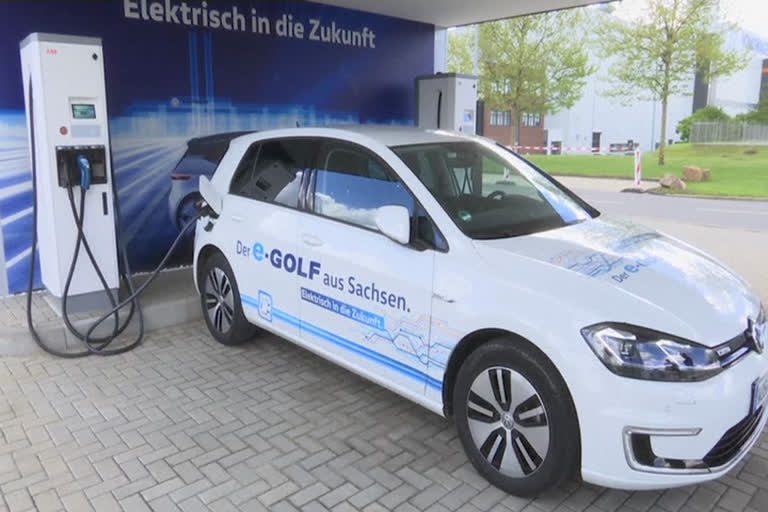Zwickau: The world's largest carmaker is creating its first all-electric plant and phasing out production of the internal combustion-engine cars built by generations of local workers.
The electric transformation raises questions about the long-term prospects of the auto industry, which employs 8,40,000 people in Germany and millions worldwide, as a source of jobs for communities like Zwickau, which gave the world both the luxury brand Audi and the communist-era Trabant "people's car."
Volkswagen's 1.2 billion euro (1.35 billion US dollar) investment is taken as a sign of hope for the community. But the longer term trends for employment are less certain.
Among the key concerns is that electric cars don't need engines and transmissions with thousands of metal parts that need to be assembled. Where an internal combustion engine has 2,000 to 3,000 metal parts, an electric drivetrain has 150 to 250 parts.
And the batteries that power it are produced through far different processes that are easy to hand over to robots.
The Frauenhofer Institute for Industrial Engineering in Stuttgart estimates that 23,000 to 97,000 German jobs could go missing in power train production by 2030.
Read more:Nike, Adidas urge Trump to end trade war
Zwickau's auto industry began in 1904 when August Horch founded a carmaker under his own name and then started Audi, now part of Volkswagen and headquartered in southern Germany.
The company's electric pivot is part of its effort to leave behind the scandal in which the company admitted to cheating on diesel engine emissions tests.
European Union requirements to cut average carbon dioxide emissions from 2021, following on from the 2016 Paris climate agreement, are pushing automakers to quickly build and sell more battery-powered vehicles.
Electric cars remain a tiny part of the market as higher prices and lack of places to charge put off consumers - only 1.6 per cent in Germany, 1.2 per cent in the United States.
Volkswagen is betting that by pricing the ID 3 at under 30,000 euros (33,500 US dollars) for the base version, it can make E-cars a mass phenomenon, taking aim at Tesla, which says it is now selling the long-promised 35,000 US dollar version of its compact Model 3.
From 2021, the Zwickau plant will have the capacity to turn out 330,000 cars a year across six models.
In some ways the push into electric cars is already leading to some job cuts, analysts say, as companies seek to improve profits, without which they can't invest in new technology.
Volkswagen itself has said it will reduce administrative staff at headquarters by 5,000-7,000.




